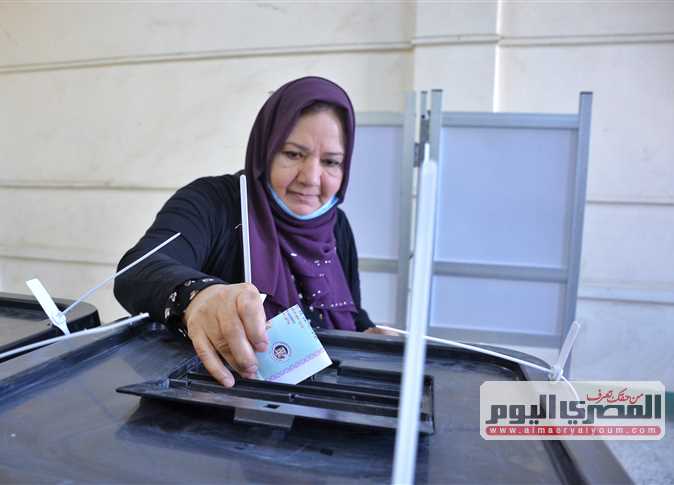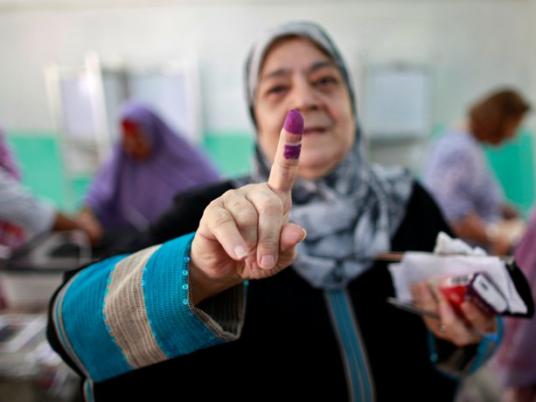The Egyptian political arena is currently passing through multiple disparate conflicts between various forces and on a number of planes. Perhaps the most important of these are the formation of the Constituent Assembly, which will be responsible for writing the country’s new constitution, and the tough competition over the upcoming presidential election slated for late May, which should officially mark the final stage in the path of power transfer in Egypt.
With regard to the choice of the Constituent Assembly members, the Muslim Brotherhood is the cornerstone that can either bring the whole issue to a halt or get things to move along smoothly. The Salafis are more lenient than the Brotherhood and more willing to come to a consensus with the non-Islamist forces in choosing the Constituent Assembly members, as the Salafis are not currently engaged in a battle of any kind. For one, Salafis no longer have a candidate in the presidential elections and their goal now seems to center on avoiding total domination by the Brotherhood over state institutions. There is a fear that the Brotherhood’s domination might lead to a reproduction of the Iranian scenario, where a supreme leader controls the state. The Salafis, however, remain keen on ensuring the Islamist movement as a whole does not lose the presidential election and hence their support for former Brotherhood member Abdel Moneim Abouel Fotouh, and not Mohamed Morsy — the latter being the official candidate of the Brotherhood and its Freedom and Justice Party.
At the same time, Salafis do not want Parliament to be dissolved so as not to lose their current share in the political system (Salafis won around 25 percent of seats in the latest parliamentary elections). Salafis thus welcome any action that will calm things down and help solve the Constituent Assembly conflict in order to avoid the collapse of the power transfer process.
The non-Islamist forces do not have an ideal presidential candidate either. The difference between the non-Islamists and the Salafis is that the former does not enjoy any considerable or secure share in the current political system. Therefore, for non-Islamists, securing a satisfactory place in the Constituent Assembly in the face of the Brotherhood’s dominance is an existential matter and hence their insistence on refusing their exclusion.
On the other hand, the Brotherhood is playing out the issue surrounding the Constituent Assembly as a seesaw battle. The Brotherhood first expressed interest in respecting criteria that guarantees the appropriate composition of the Constituent Assembly in order to show their flexibility and desire for consensus and understanding, only to turn around and reject these criteria through the legislative committee. The game they’re playing is in an attempt to pressure the military council into allowing them to be allowed greater political power to, for example, pass certain general policies or garner positions within the executive branch.
However, these are secondary battles for the Brotherhood as they realize that the constitution will be written while the new president is in power, and therefore, their real fight is to win the presidential election. This is very surprising, since anyone with any political shrewdness can see that Morsy’s chances of winning are low, especially after the Salafis rejected calls to support him, which no doubt the Brotherhood learned of early on. Even in the highly unlikely scenario of Morsy’s victory, the Brotherhood will not be able to meet people’s expectations and hopes for change in such a critical transitional period, and thus they will lose whether or not they win the presidency.
In any case, if the elections do take place and the Supreme Council of the Armed Forces does not mess up the whole issue, the next president will assume power under a cloud of constitutional and institutional ambiguity in the absence of a new constitution. The existing constitutional declaration does not specify the terms of the relationship between the president and Parliament, and for this reason in particular the SCAF may issue a new constitutional declaration anytime now.
More importantly, the new president will be unable to achieve any change in the state’s executive policies as he will lack the political and organizational powers needed to dismantle the bureaucratic networks that regulate the ruling regime. Therefore, he will not have the power to appoint, exclude or hold people accountable within the ruling and administrative authorities — a power necessary for passing policies, and for allocating government and community resources.
In short, nothing will change.
The only force with the organizational power to face the regime’s political system is the Brotherhood. However, the Brotherhood will not attempt to do this for two reasons: First, they will not win the presidency as Morsy’s chances are very low and therefore will not hold executive power. And secondly, the Brotherhood would be reluctant to overhaul the political system for reasons related to the conservative nature of their social, organizational and economic composition. They are inherently opposed to rooting for change, or entering into any extensive institutional and community conflict, even if this is the only way to garner real change.
Finally, there are potential hotbeds of social unrest that could spiral out of control, possibly in the forms of angry demonstrations by supporters of Hazem Salah Abu Ismail — the only new political actors in recent months — and the continuing political action by labor and other protest movements.
So in this sense, the transitional period will never end — there will be no real transfer of power and real executive authority will not be held by any elected party, regardless of whether or not the presidential election take place and irrespective of their outcome.
Furthermore, the military will not take over executive rule in a direct and comprehensive manner in the Nasserist style as they cannot afford the cost of such an action. On the other hand, they will not allow any real transfer of executive power as this could threaten their interests. All they want is for executive power to continue to function in the current state of political vacuum with no real authority, as the black hole it is. Egypt, however, cannot bear this situation much longer considering the social and economic crises it faces.
Sooner or later the collapse of our deep state is imminent, as it cannot be revived nor given temporary sedation, not to mention the fact that Egypt will not continue to tolerate circum-political debates, instead of debates on the achievement of the much needed economic and political change, for much longer.
Ashraf El-Sherif teaches political science at the American University in Cairo.
Translated by Aisha Al-Awady.




